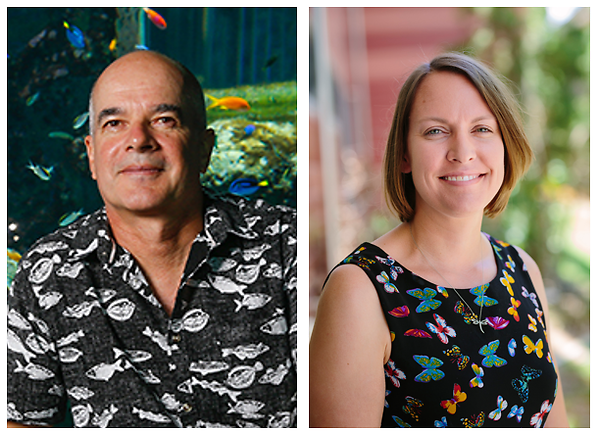[Seminar] "Coral reef fish in a changing world: evolutionary potential and ecological limitations" by Philip L. Munday and Jennifer M. Donelson

Date
Location
Description
Abstract:
Many short-term experiments have demonstrated the potential impacts of ocean warming and acidification on marine organisms. However, longer-term experiments are needed to test the capacity for acclimation and adaptation to these stressors. In this talk we will describe unique multigenerational experiments being used to test the effects of warming and acidification on coral reef fishes and explore their capacity for thermal plasticity and adaptation. These same experiments are being coupled with modern molecular approaches to understand the mechanisms underlying phenotypic responses to warming and acidification, and the mechanisms by which adaptive responses occur within and between generations. Our results indicate that there is limited capacity for reversible acclimation to elevated temperature in adult reef fishes, but exposure to higher temperatures during early life can induce beneficial developmental plasticity that improves performance at higher temperatures later in life. Parental and multigenerational exposure to elevated temperatures can have further beneficial effects on the performance of fish at higher temperatures, both through transgenerational plasticity and the presence of heritable genetic variation. Nevertheless, there are limits to these beneficial effects and major experimental challenges remain in understanding the mechanisms by which the environmental conditions experienced in one generation influence the performance of future generations. Furthermore, degradation of coral reef habitats directly affects reef fish populations and may also reduce their capacity to adapt to climate change.
Biography:
Professor Philip Munday
Professor Philip Munday is a Reef Research Leader and Chief Investigator in the ARC Centre of Excellence for Coral Reef Studies at James Cook University in Australia. He has broad interests in the ecology and evolution of reef fishes. His primary research focuses on predicting the impacts that climate change and ocean acidification will have on populations and communities of marine fishes, both directly through changes in the physical environment and indirectly through effects on coral reef habitat. Using a range of laboratory and field-based experiments the research group he leads is investigating the effects of climate change on fish populations and testing their capacity for acclimation and adaptation to a rapidly changing environment. Professor Munday has published over 250 scientific articles, he is on the Editorial Boards of Global Change Biology and Biology Letters, and is a Fellow of the International Society for Reef Studies.
Dr. Jennifer Donelson
Jenni Donelson is a Senior Research Fellow at the ARC Centre of Excellence for Coral Reef Studies, at James Cook University. Jenni received her doctorate from James Cook University in 2012, following this she was a Chancellor's Postdoctoral Fellow at the University of Technology Sydney before returning to James Cook University in 2016. Her research focuses on the plasticity of fish in the face of changing environmental conditions. Specifically, on the capacity for developmental and transgenerational plasticity of reef fish to potentially enhance performance in future environment. She is particularly interested in how exposure of previous generations influences the phenotype of the current generation, and more broadly how this could impact species’ responses to future climate change.
Subscribe to the OIST Calendar: Right-click to download, then open in your calendar application.



